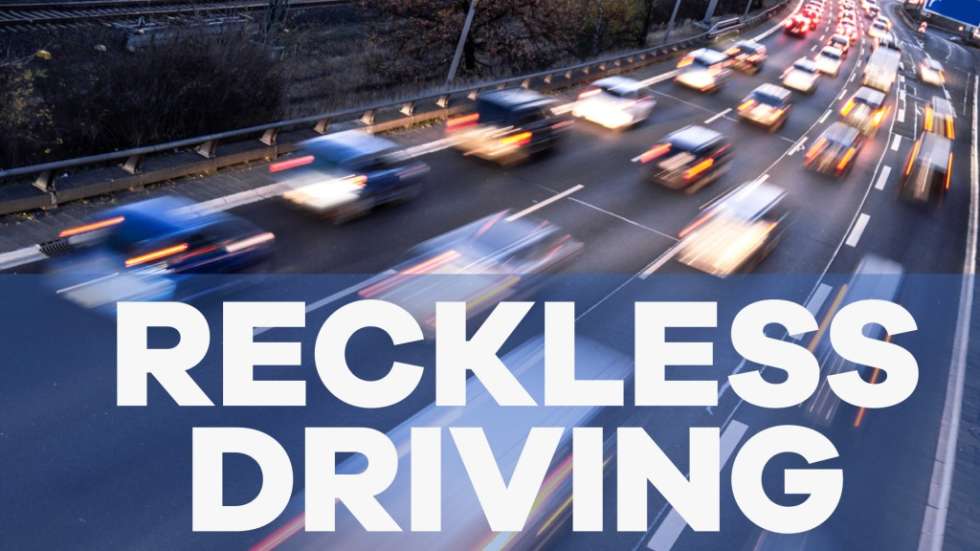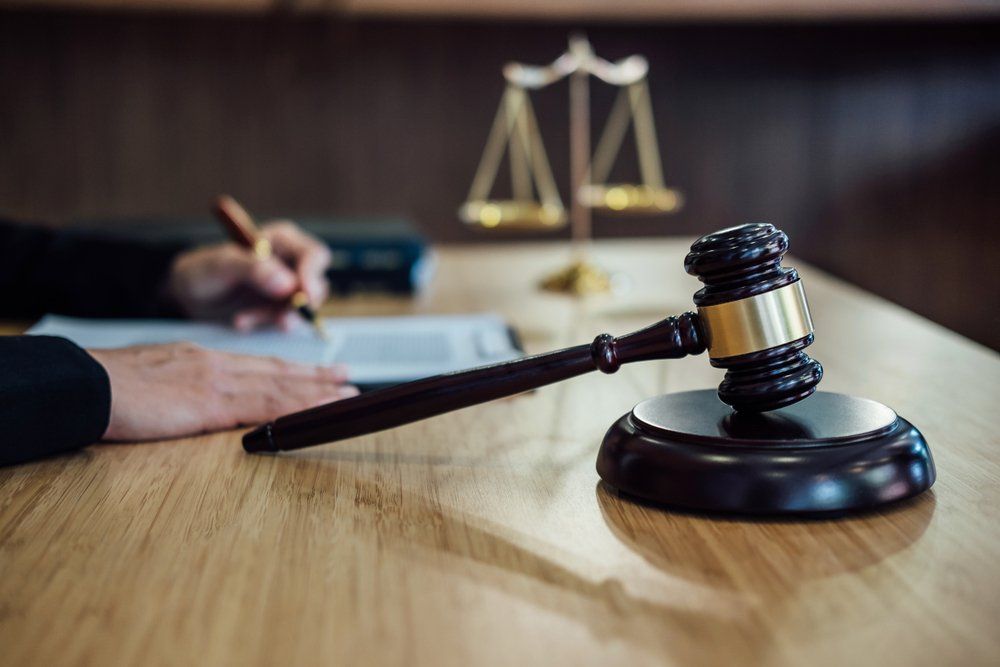Simple Assault Charges and Punishment in Virginia
Assault and Battery in Virginia There is a lot of confusion about what is assault and battery in Virginia. There are many different ways to assault someone. When we talk about assault and battery in Virginia there are two different offenses. Assault is the fear you put someone in of a battery and the battery[...] The post Simple Assault Charges and Punishment in Virginia appeared first on Leavitt & Martin.
Assault and Battery in Virginia
There is a lot of confusion about what is assault and battery in Virginia. There are many different ways to assault someone. When we talk about assault and battery in Virginia there are two different offenses. Assault is the fear you put someone in of a battery and the battery is the actual offensive contact. Sometimes a simple misjudgement will end with an arrest or a charge of assault. At Leavitt & Martin , we have successfully handled hundreds of Virginia assault cases, both domestic assault and simple assault.
Assault and battery mean two different things in Virginia. Assault is the fear of getting hit, and battery is the actual hitting. Think about the scenario where someone pulls balls up their fists and swings at someone to their face. When you pull your hand back to hit someone the assault is everything leading up to the contact. So if the person ducks and does not get physically hit, then there is only an assault and not a battery in Virginia.
Likewise, if someone walks up to a person whose back is turned and punches them in the head then it is a battery only, not an assault and battery in Virginia.
The Punishment for Assault and Battery in Virginia
The potential punishment for committing an assault and battery in Virginia is the SAME whether you commit a SIMPLE ASSAULT or and ASSAULT AND BATTERY in Virginia. It is classified as a class 1 misdemeanor either way, and the range of punishment is 0-12 months in jail and a fine of $0-2500. Keep in mind that domestic assault and batteries have potentially different consequences.
Also, if you commit an assault and battery in Virginia against someone where bodily injury occurs it is a class 6 felony based on their:
- race
- religious conviction
- color
- national origin
If there is no bodily injury, but the victim was selected due to race, religious conviction, color or national origin then there is a mandatory sentence of 30 days in jail.
In addition, certain assault and batteries are more severe:
- against law enforcement, judge, magistrate, DOC prison officer it is a felony
- against certain teachers
- against healthcare workers
What Is Simple Assault?
Simple assault is the most common assault and battery charge. It is an unlawful attack, attempt, or threat of harm. Unlike aggravated assault, simple assault does not involve a weapon or serious injury. Is pushing someone assault? Yes. Pushing can be prosecuted under the Virginia assault and battery law.
Examples of simple assaults include:
- pushing
- slapping
- hair pulling
- grabbing
- pinching
- spitting
- poking or
- scratching
- pointing a laser in someone’s eye has been deemed a battery
A person can be charged with simple assault without even touching the victim. Simple assaults do not cause actual injury. These charges usually stem from a confrontation in which one party decides to press charges.
Simple Assault Examples
In addition to the behaviors noted above, which are technically batteries, here are some examples of simple assaults that come up:
- swing and miss a punch
- act like you are going to hit someone and get them to flinch
- if you put them in fear of being hit, it is assault
- throw an object at someone but you intentionally miss
- again, it is the fear of being hit that is the assault, the contact is the battery
How to Drop Assault Charges in Virginia
drop an assault charge
This question comes up all the time. It is more frequent in the DOMESTIC assault and battery situation where someone takes out charges against someone and then wants to drop the assault charges. So here is how the assault process in Virginia works:
After an Assault Charge is Brought, Some Charges for Assault can be Dismissed with an Accord and Satisfaction
Either the police officer or the alleged victim will initially take out the charge for assault in Virginia. In the case of a domestic assault and battery, the police officer can bring out a charge for domestic assault if he/she did not witness the assault, assuming there is evidence of an assault.
Once the charge is brought, it is technically up to the judge or prosecutor to drop the charge. The alleged victim, or the police who initiated the charge are then witnesses once the charge is brought. There is an exception to this general rule. For simple assault cases, NOT DOMESTIC, the parties involved can reach what is called an ACCORD AND SATISFACTION. It is basically a signed agreement and once the judge accepts it the simple assault charge is dismissed according to the accord and satisfaction. Both parties have to agree, and the judge has to accept it.
What if this is Domestic Assault?
Domestic assault and batteries cannot be dismissed with an accord and satisfaction. Those charges would need to be either Nolle Pros’d, or dismissed by the judge. A nolle pros means “decline to prosecute.” In some cases, the prosecutor may decline to prosecute a simple assault or domestic assault case. It is in the prosecutors discretion to nolle pros a charge or not.
Other Ways to Drop an Assault Charge
Only the prosecutor or judge can “drop” a Virginia assault charge. Prosecutors sometimes drop an assault charge by nolle pros’ing the charge. They do this in some cases where the assault may be pretty weak. It may be a father/son or husband and wife situation and after reviewing all of the information they may not want to prosecute the case. If that happens, they can drop the charge.
Sometimes prosecutors will drop the charge because they cannot prove the charge.
can’t prove it
Example: Wife/girlfriend is in a fight with significant other. Wife/girlfriend alleges an assault and a charge is brought. The prosecutor refuses to drop the charge even though the alleged victim wants to drop the charge. At trial, there is not enough evidence to prove the assault beyond a reasonable doubt because the alleged victim did not cooperate. The assault charge gets dropped.
There are multiple ways this can happen. Some alleged victims outright refuse to cooperate with the prosecutor. Sometimes this can result in the alleged victim getting charged with filing a false police report, or some similar charge. Some prosecutors offices have a policy to prosecute alleged victims in cases like this.
Other times, the alleged victim gets called as a witness and testifies under oath that they cannot remember what happened. If the alleged victim does not remember, then the assault case would be dismissed if that was the only evidence of the assault or if the evidence was necessary and vital to the case.
Finally, some alleged victims want to drop an assault case and they consult with a lawyer. Sometimes the facts of a case are such that there is potential criminal liability for the alleged victim which could trigger criminal liability for the alleged victim if they testified. In that situation an alleged victim might plead the fifth, since everyone has a right not to incriminate themselves. The prosecutor then will sometimes grant immunity which could take away the right to plead the fifth.
The bottom line is that prosecutors have the discretion on whether or not to continue a prosecution. It is up to the judge on whether or not to dismiss the case after a trial. In simple assault cases, an accord and satisfaction is an easy way to drop an assault charge in Virginia. For domestic cases, hopefully the prosecutor is reasonable and uses appropriate discretion. An alleged victim does NOT want to be subject to prosecution for filing a false police report, or perjury. It is best to consult with a lawyer who can best advise you of your rights. These are tricky situations, but if someone lies under oath they will be prosecuted most of the time. Many alleged victims get prosecuted trying to drop an assault charge.
How to Press Assault Charges in Virginia
press assault charges
How do you press assault charges in Virginia? For most misdemeanor offenses, the police have to witness the crime. However, there are exceptions. For instance, a DUI accident does not have to be committed in the officers presence. And there are other exceptions.
To file assault charges, either a police officer will need to take out a warrant for assault and battery in Virginia or a victim can go directly to a magistrate. If the magistrate listens to the facts and determines that probable cause exists for assault and battery then the magistrate will issue a warrant.
Once the magistrate issues a warrant for assault and battery, it will need to be served on the person who committed the assault and battery. So, if you want to press charges for assault and battery then either a police officer will need to bring the charges if they can, or a magistrate. Also, some police officers choose not to bring charges for various reasons. However, victims can always go to the magistrate and the magistrate can issue a warrant for assault if probable cause exists. And that is how to press assault charges.
Simple Assault Laws in Virginia
Virginia state law classifies simple assault as a class 1 misdemeanor. A class 1 misdemeanor carries the following penalties:
- up to one year in jail, and/or
- up to a $2,500 fine.
These are punishments allowed under the law for a simple assault charge. For a first offense, a judge usually does not hand down the toughest penalties. Depending on your case, a defense attorney may be able to convince the judge to allow a lighter sentence. Examples of this would be probation or community service. A skilled lawyer may even be able to get your simple assault charge dismissed.
Penalties will be more severe if simple assault combines with other charges. The same severity will apply if it is part of a hate crime. Assaulting someone based on their race or religion will result in a felony and mandatory jail sentence.
Impact of a Simple Assault Charge
A simple assault charge will drop if the alleged victim testifies. They will also dismiss if he signs an affidavit acknowledging “accord and satisfaction”. This indicates the victim and the accused have settled their differences and may involve a payment of money to the victim.
If convicted of simple assault, the conviction will show up on background checks. A conviction may also prevent you from obtaining a permit to carry a concealed handgun.
The victim of the assault may decide to file a civil case demanding restitution. The burden of proof in civil lawsuits is different from that in criminal court. You might lose a civil case even if your criminal charges get dismissed.
First Offense Assault Charge
There is no such thing as a first offense assault charge in Virginia, under the regular Virginia assault and battery law 18.2-57. There IS a first offense assault charge under the DOMESTIC assault and battery law 18.2-57.2. Under the first offense program, your case can be deferred for two years and if you successfully complete the program the case gets dismissed. This is sometimes a good option.
Under the regular, non domestic assault and battery law in Virginia there is no first offender program. There may be a way to dismiss the case, but there is no first offender program to dismiss the case. In addition, judges and prosecutors will be looking at the criminal history so it is better to have a first offense assault charge then to have a history of assault.
Virginia Criminal Defense Lawyers
A simple assault charge can either be a minor headache or have long-term negative consequences. The punishment received depends on the details your case and the skill of your legal representation. If you have a simple assault charge in the greater Richmond area, contact the experienced defense attorneys at Leavitt & Martin PLLC to schedule a free consultation.
Daniel Leavitt and Corey Martin have successfully defended many clients in general district court, juvenile and domestic relations court, and in circuit court for simple assault charges. We can often help get these charges dismissed, or help minimize what happens.
The post Simple Assault Charges and Punishment in Virginia appeared first on Leavitt & Martin.















